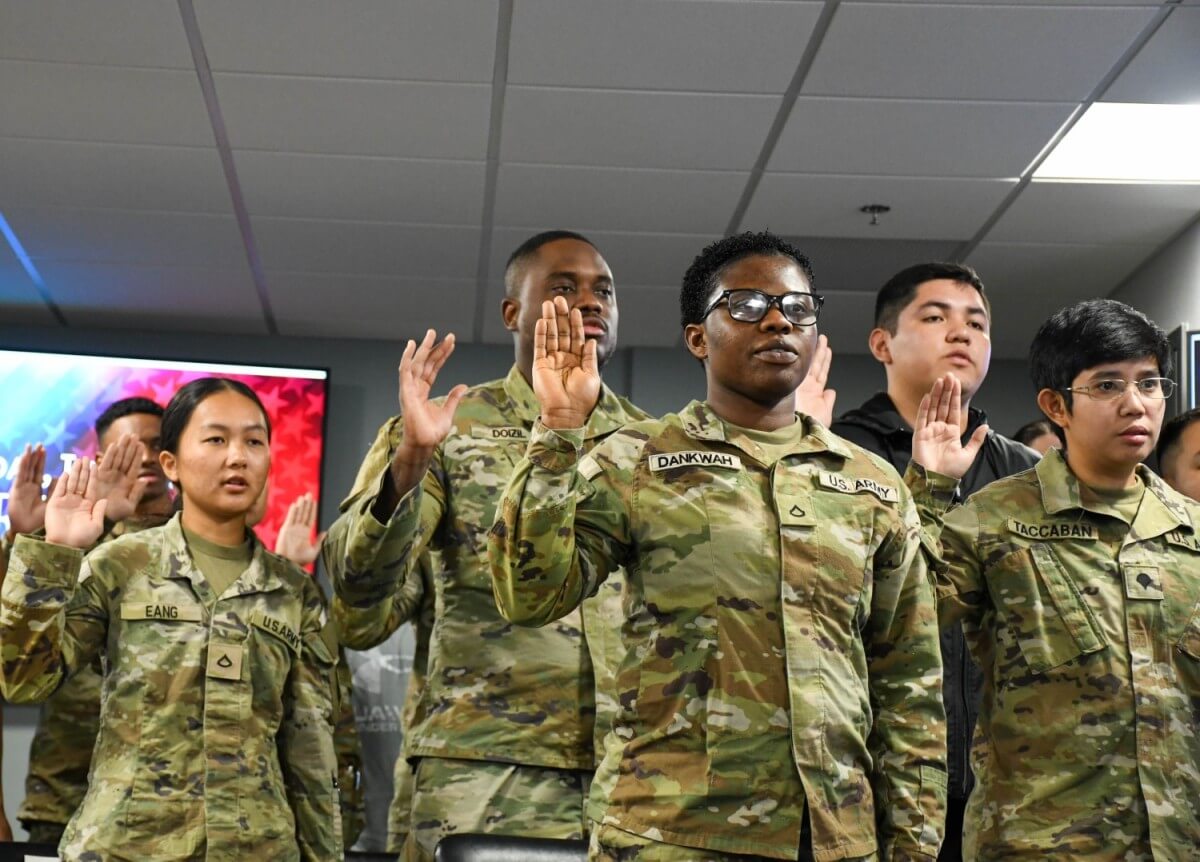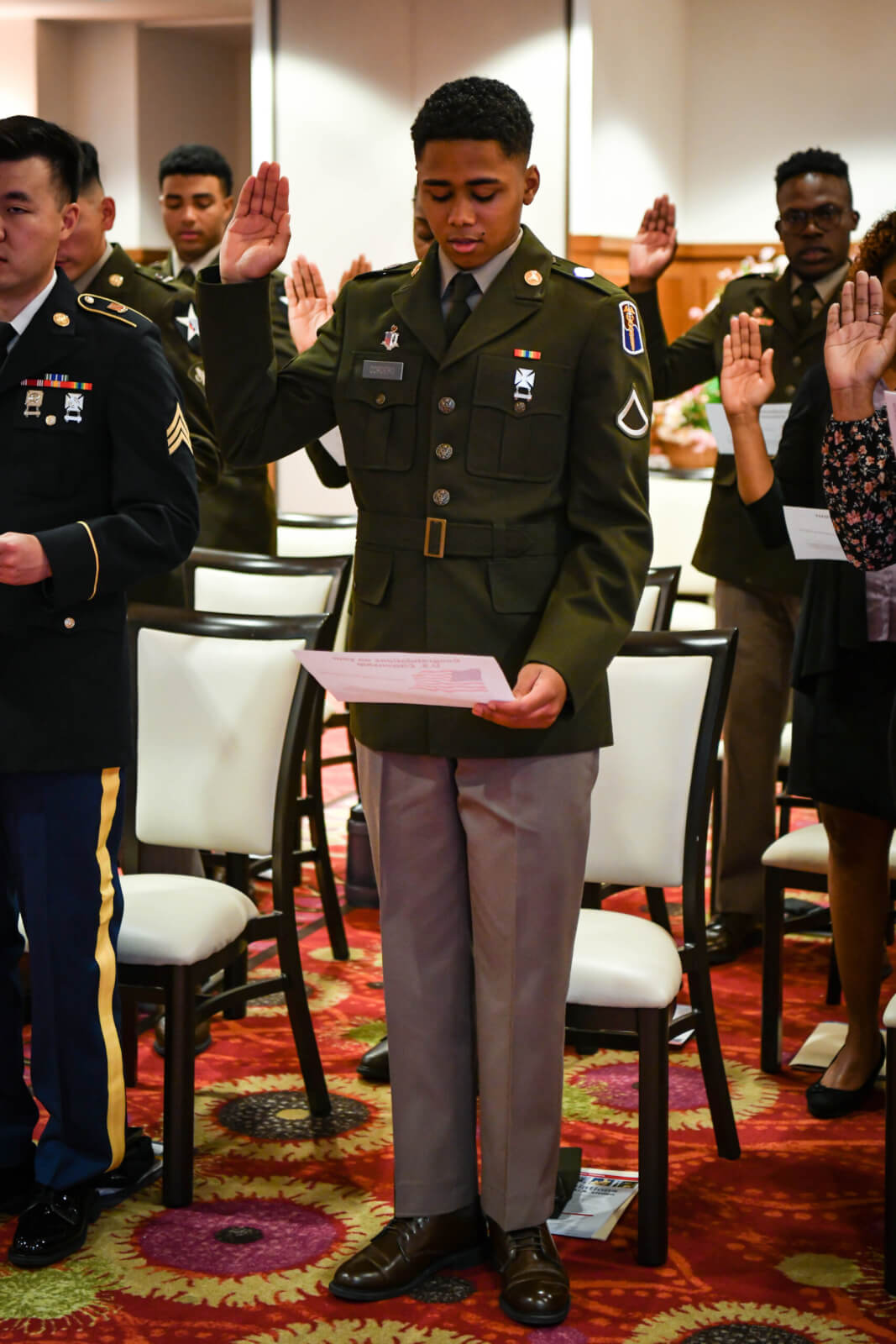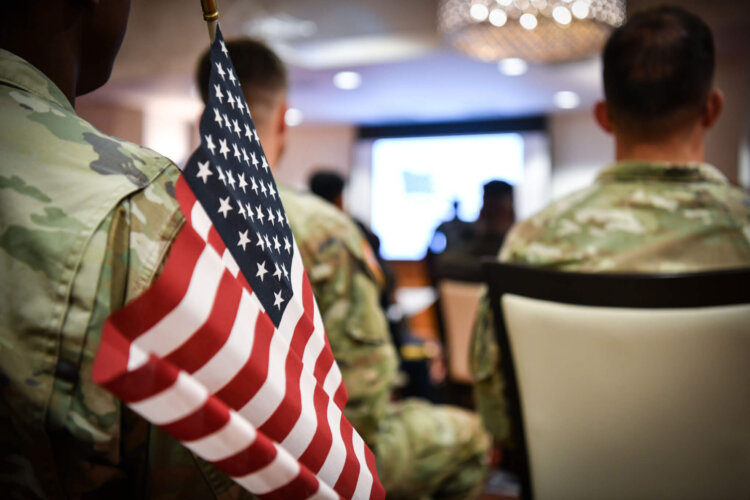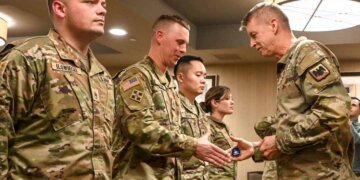English is not Pvt. Martin Jimenez’s native language. He admits this potential barrier made navigating Basic Combat Training (BCT) even more intimidating.
“At first, I was afraid that I would be separated from everyone else because I’m still learning English,” Jimenez said. “But a few weeks in, I blended in with everyone else. It’s been such an adventure for me.”
In September 2024, he enlisted in the U.S. Army as a 91B (wheeled vehicle mechanic) out of Upland, California, a city about 40 miles east of Los Angeles. However, leaving his job in construction wasn’t the only major change for the 29-year-old. Jimenez, who was once a permanent resident cardholder, is now a U.S. citizen. He joins the more than 187,000 foreign-born service members who have used military service as a pathway to citizenship since 2002.
In 2022, the Army reinstated the opportunity for Lawful Permanent Residents to apply for accelerated naturalization, giving enlistees like Jimenez a faster path to citizenship. In his case, the paperwork was processed while he was in BCT, with the application fee waived. The U.S. Air Force has a similar expedited naturalization process.

Army recruiter Sgt. 1st Class Hadar Espinoza, who works in a region with a large Latino population, said he frequently meets foreign-born applicants eager to opt into this opportunity, a process that normally takes years and can cost up to $760 per application.
“I’ve seen that men and women are very proud of the steps they’re taking to be part of something greater, part of the greatest Army in the world,” Espinoza explained. “And they want to give back to a country that’s given them so much.”
Espinoza was Jimenez’s recruiter and was a firsthand example of the military’s path to citizenship. He and his mother immigrated to the U.S. from Mexico City when he was 8 years old. After completing high school and starting college under permanent resident card status, Espinoza saw how laborious and expensive the road to citizenship would be. Then the Army presented another option.
Espinoza enlisted when he was 24 years old and completed the naturalization process while deployed to Iraq. He recalled his unit helping him take his passport-style photos and mailing his application to the Department of Homeland Security for processing.
“The day I came back from my deployment, I walked into a ceremony where I got my citizenship,” he said. “It was a very, very special moment. Now, 17 years later, here I am still serving in the Army.”
Naturalization approvals for U.S. military members have been steadily rising since 2020. In fiscal year 2023, U.S. Citizenship and Immigration Services (UCIS) naturalized 12,150 service members. In FY 2024, that number jumped to more than 16,000.
With immigration status continually at the center of national debate, it is no surprise that more individuals elect this pathway to citizenship. Yet Espinoza and another soldier, who requested anonymity, emphasized that for those who choose this route, a commitment to service and country should be the driving factor.

“I think people should have the right intentions when they join the military. I don’t think people should join just to get the benefit of citizenship,” said the soldier. Born in Eastern Europe, he was studying in the U.S. under an F-1 (Student) visa and enlisted in the Army in 2009 under the Military Accessions Vital to the National Interest (MAVNI) program.
Established in 2008, MAVNI was designed to help the armed services fill certain medical roles or recruit individuals with specialized language skills or cultural backgrounds. It offered a path to service — and citizenship — for certain non-permanent residents, including refugees, asylum seekers and others authorized to enter the U.S. in temporary status. However, the program was suspended in 2016 after national security concerns arose over inadequate vetting of some applicants.
Today, the Army’s current expedited citizenship program requires applicants to be lawful permanent residents. There is also a parole-in-place program where UCIS may grant temporary entry or stay for family members of service members as they await residency. Jimenez said now that he has acquired citizenship, he would like to help his parents.
“Personally, this has been one of the best decisions I’ve made for my career. It’s been incredible,” Jimenez said. “I plan to reenlist after this contract ends. There are more goals I want to reach.”
Story written by Sierra Starks
Read comments

























